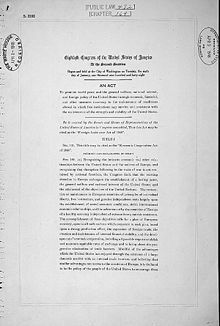“Punting the Pundits” is an Open Thread. It is a selection of editorials and opinions from around the news medium and the internet blogs. The intent is to provide a forum for your reactions and opinions, not just to the opinions presented, but to what ever you find important.
Wednesday is Ladies’ Day.
Thanks to ek hornbeck, click on the link and you can access all the past “Punting the Pundits”.
Follow us on Twitter @StarsHollowGzt
Rozina Ali: Egypt’s al-Jazeera trial was inspired by America’s global war on journalism
From a War on Terror to a war on leaks, now comes America’s shadow influence on a media crackdown
Today, Egypt resumes its trial of the three al-Jazeera journalists it has held in captivity since December on the grounds that their coverage threatened national security. Media outlets, advocacy groups and foreign governments – including the United States – have all condemned the arrests and criticized the proceedings as a bold political move to suppress opposition. [..]
But the brazen political rhetoric out of Cairo continues: that al-Jazeera’s Peter Greste, Mohamed Fahmy and Baher Mohamed are guilty of aiding the Muslim Brotherhood, that the Brotherhood is a terror group, and that counter-terror policy is crucial to democracy at all costs – even at the cost of a free press, that beating heart of democracy.
This rhetoric is not new. Egypt seems to draw inspiration from the very country criticizing it – the United States.
Over the past decade, the US not only detained but tortured al-Jazeera journalists under counterterrorism policies. Now, as its War on Terror diffuses into support for an increasing number of local – and secret – wars on terrorism across the globe, the tactic of imprisoning journalists seems to be catching on.
Cara Hoffman: The Things She Carried
The injury wasn’t new, and neither was the insult. Rebecca, a combat veteran of two tours of duty, had been waiting at the V.A. hospital for close to an hour when the office manager asked if she was there to pick up her husband.
No, she said, fighting back her exasperation. She was there because of a spinal injury she sustained while fighting in Afghanistan.
Women have served in the American military in some capacity for 400 years. They’ve deployed alongside men as soldiers in three wars, and since the 1990s, a significant number of them are training, fighting and returning from combat.
But stories about female veterans are nearly absent from our culture. It’s not that their stories are poorly told. It’s that their stories are simply not told in our literature, film and popular culture.
Heidi Moore:
GM sold us on a comeback. Don’t buy a CEO’s apology – buy cars that are safe
The bailout was a false narrative. The research never showed a ‘new’ GM. Oh, and 6m cars didn’t work. Saying sorry to Congress won’t cut it
This afternoon, its new CEO, Mary Barra, will try to explain to a Congressional oversight panel why GM fought so hard to save its own life during the financial crisis, even as the company stayed silent for a decade when it had the chance to save the lives of drivers. GM has recalled more than 6m produced between 2005 and 2014 – including three new recalls over the past week – in a series of moves that reveal sprawling, systemic corporate incompetence.
“Today’s GM will do the right thing,” Barra will say under oath, according to her prepared remarks. But there is a dark undercurrent to her words, which will only highlight a truth that is no longer excusable: General Motors spent over a decade misleading the public about mechanical failures in its cars, working to create the false image of a rehabilitated powerhouse of American industry.
And it will make you wonder what else GM hasn’t told us – indeed, what it doesn’t even know yet – about its $55bn business.
Ana Marie Cox: The excuse for killing Trayvon Martin has become the standard of democracy
Statehouses are supposed to be America’s laboratory, but the experiments are rigged. Since when is Stand Your Ground 2.0 the standard of justice?
The Florida House recently passed legislation that would seal the records of anyone who successfully sustains a stand-your-ground defense after a shooting. The proposal would allow a gun-wielding vigilante to escape not just any and all legal complications but also awkward interactions with curious neighbors. So Floridians think a stand-your-ground shooting might be something one would want to hide. Which might finally answer the question: does Florida have any shame?
Some of the state legislators were at least aware of the attention stand-your-ground laws have drawn. As Democratic Rep. Mia Jones explained to her colleagues: “The world is looking at Florida and … we don’t look good right now.” This is not, perhaps, a persuasive argument in a state that leads the nation in both incidents of human cannibalism and “zombie foreclosures”. The so-called “warning-shot” bill passed 93-24.
Shamelessness aside, the renewed passion of Florida politicians for the expansion and protection of this type of loophole – the very kind that let George Zimmerman run free, even if he got off on self-defense – at least raises a different question: Why are those local legislatures passing such embarrassing laws in the first place?
Katrina vanden Heuvel: On Universal Pre-K, de Blasio Shows Democrats How to Lead From the Left
With Albany’s passage of the state’s 2014-15 budget, New York City Mayor Bill de Blasio will see his plans for universal pre-K education and an expansion of after-school middle school implemented in the five boroughs. But with significant concessions made for the accommodation of charter schools, as well as a rejection of the mayor’s preferred source of funding for the programs, the victory is qualified, and the outlook for pushing more progressive reforms in the state seems murky. [..]
Nevertheless, at end of the day, despite the concessions made to charter schools (which are legion and problematic), the less-than-optimal source of funding, and the chilling notice given to anyone who might deign to ask the one-percent to pay full freight, New York’s new program still represents a strong expansion of the education system. Essentially, a new grade of school has been carved out in New York City, one that will eventually reduce the segment of the population that will in the long run be poor and boost college graduation rates for children. Ultimately, the city should win with this one.
Michelle Chen: $2.13 an Hour? Why The Tipped Minimum Wage Has to Go
The person who serves you lunch today may work for a minimum hourly wage that’s less than the price of your coffee. And no matter how generous your tip, at the end of the day, she’ll take home much less in wages than what she deserves. Federal law has been exploiting workers like her for years, according to labor advocates, thanks to an ultra-low wage floor that systematically cheats servers, bartenders, hairdressers and others of a fair day’s pay. [..]
A unique economic relic, the base wage for tipped workers has eroded steadily since 1996, when it was unpegged from the already absurdly low federal minimum. The crumbling value of both wage tiers over the past decade, according to the calculation of advocacy group Restaurant Opportunities Center (ROC), amounts to a yawning gap between tipped workers’ earnings today and what they would have made had the wage rates been adjusted equitably. All in all, the gap represents a net “loss” of more than $20 billion.
On this day in 1949,the NATO pact signed

 On this day in 1948,
On this day in 1948, 

Recent Comments